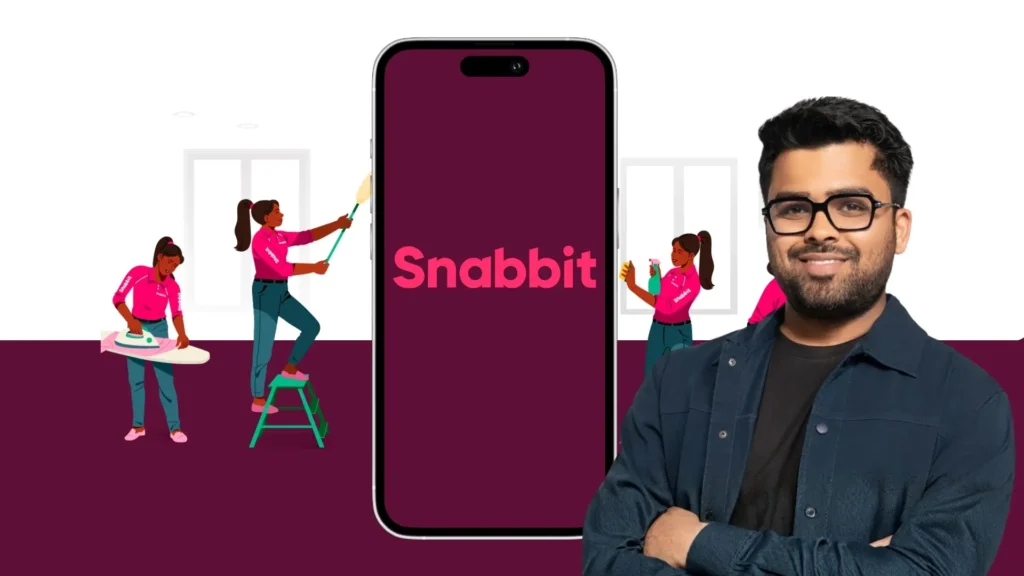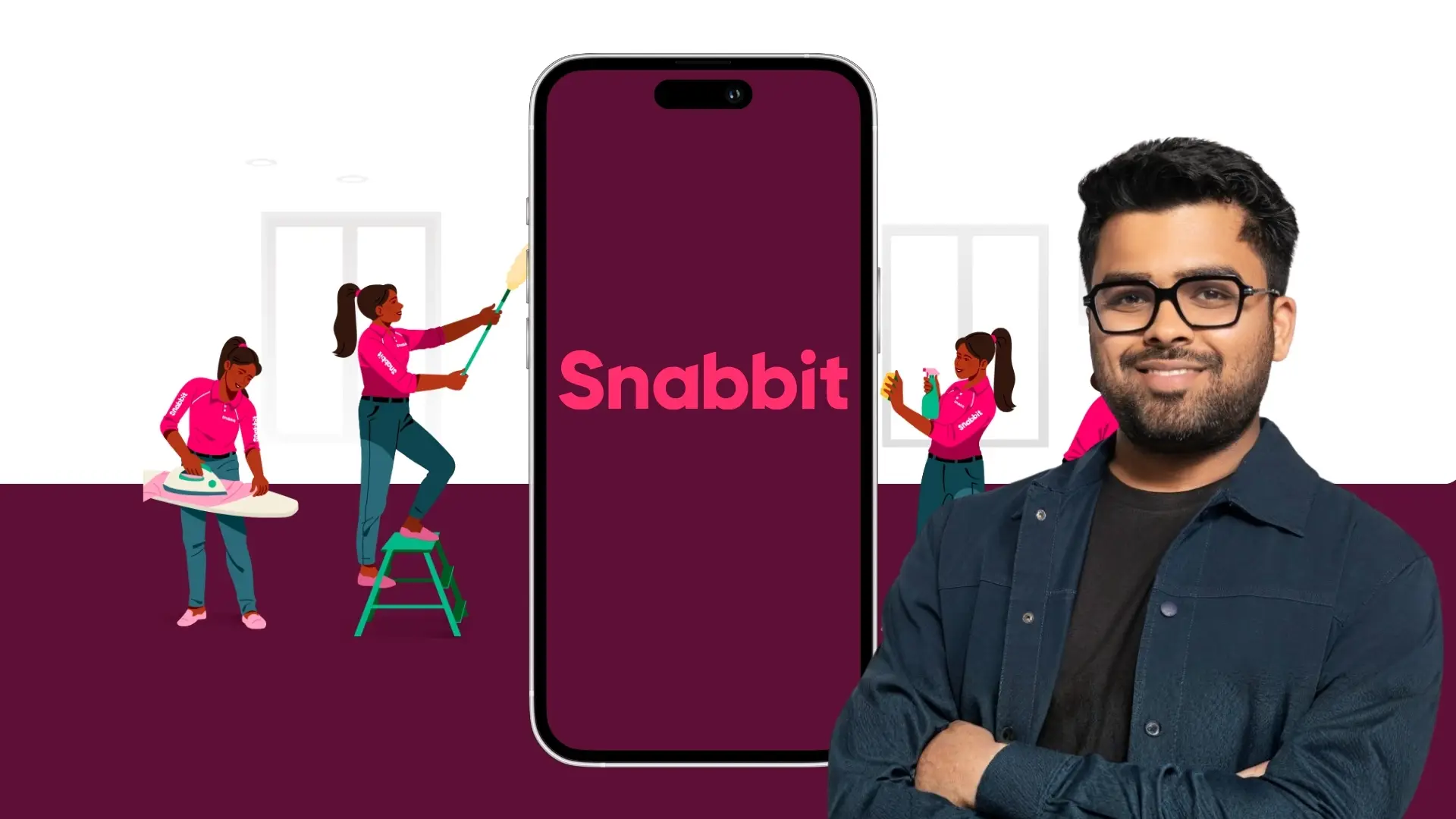Quick commerce is booming like anything. Whatever you want is getting delivered to your doorstep in just 10 minutes. While many players are targeting to deliver groceries, foods, vegetables, and other items in 10 minutes.
But think, what if you urgently need a plumber to fix a leaking tap, a maid to clean your home before guests arrive, or an electrician to repair a short circuit? There’s no app to solve that instantly. In small towns or villages, you can still find help easily with a quick call, and someone shows up. But in cities, it’s chaos. You don’t know whom to contact, how reliable they are, or how much they’ll charge.
That everyday frustration is exactly what Aayush Agarwal, the founder of Snabbit, once went through himself. And instead of just complaining about it, he decided to build a solution, a platform that promises “quick services” the same way Zepto and Blinkit promise “quick deliveries.”
Snabbit was launched in 2024 and aims to do for household services what Zepto did for groceries. It allows users to book help for tasks like cleaning, dishwashing, laundry, or small chores and promises a professional at your doorstep in 10–15 minutes.
Unlike platforms that merely list workers, Snabbit is full-stack. It recruits, trains, and manages service professionals directly. Every worker is background-verified, uniformed, and rated on the platform. Customers can book help for a specific time or pay by the hour instead of per task, a model that gives flexibility and affordability.
This worked really well because professionals on the platform can earn up to ₹40,000 a month, nearly double the informal average, while also accessing regular work, training, and performance incentives.
In a very short period, this model worked, and as a result, Snabbit raised $5.5 million in a Series A round led by Elevation Capital in January 2025.
Just four months later, it closed a $19 million Series B led by Lightspeed, with participation from Elevation and Nexus Venture Partners. Snabbit soon shifted its headquarters from Mumbai to Bengaluru to strengthen its tech and leadership teams for the next growth phase.
Now, Snabbit operates across multiple neighborhoods and plans to expand to 200+ micro-markets in the coming year.
But what we all need to understand is, why did Snabbit work?
Urban home services in India remain fragmented and informal. Despite billions flowing into delivery and mobility startups, everyday home help remains a word-of-mouth market. Snabbit identified a clear gap and moved fast. Though there is a competition, the market is still huge.
Then one more core differentiator for Snabbit is its USP speed. Just like Zepto, Snabbit built its identity around speed. Quick arrival, transparent pricing, and real-time tracking that urban customers already expect and make it instantly familiar and convenient.
By hiring and managing its own professionals instead of being a listing marketplace, Snabbit ensures consistent quality, reliability, and trust, which are the three things that matter most to customers. This is beneficial for both the customers and also the professionals on the platform.
Now, you may think of Urban Company and its dominance. Urban Company may dominate the organized home-services space, but its focus is on professional, scheduled services like beauty, spa, or appliance repair.
Snabbit, on the other hand, targets high-frequency, everyday tasks: cleaning, dishes, and laundry services people need multiple times a week.
The company’s internal data shows users tend to rebook within three days, which is a sign of strong repeat demand. That frequency is what could make Snabbit a sustainable business in the long run.
Now, to compete with the strong rival Urban Company, they need more money in the banks. That’s exactly why Snabbit raised fresh funds recently. According to various sources, Snabbit has raised around $30 million in a Series C round led by new investor Bertelsmann, with participation seen from existing investors such as Lightspeed Venture Partners, Elevation Capital, and Nexus Venture Partners.
This fresh round marks Snabbit’s third funding in less than a year, a rare feat for a startup this young. The company plans to use the new funds to expand to new Indian cities, strengthen its technology and logistics infrastructure, and scale its verified workforce network across key urban micro-markets.
Snabbit is also exploring new categories like cooking, childcare, and elder care, aiming to become a one-stop destination for all urban household needs.
With this capital infusion, Snabbit is set to enter its next growth phase, transforming from a fast-growing startup to a potential category-defining brand in India’s service economy.
Let’s see how this startup scales its business, maintaining quality while expanding fast. What do you think about the company?
Also Read: How India’s Top Entrepreneurs Are Powering the Next Startup Wave Through Angel Investing?










